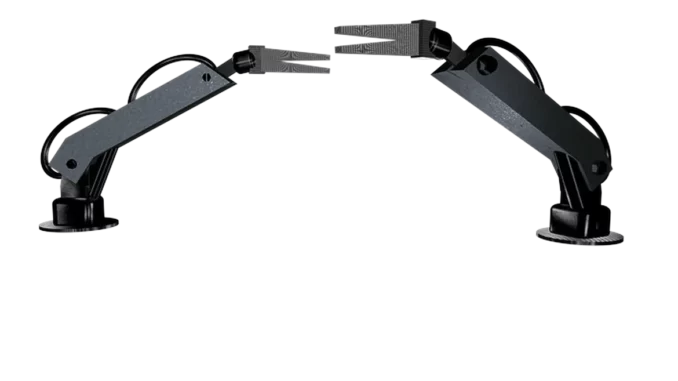
In the realm of engineering and technology, few accolades can rival the annual IEEE medals and technical awards in terms of prestige. This year, the 2025 honours have cast a distinguished spotlight on the Massachusetts Institute of Technology (MIT), with three faculty members and five alumni being recognised for their groundbreaking contributions. To delve deeper into the significance of these awards and the extraordinary achievements of the recipients, I had the privilege of speaking with Dr. Emily Carter, a renowned researcher and an astute observer of technological advancements within academia.
Healthcare IT professionals trust TrueNAS for secure, compliant, and scalable data solutions.
As we began our conversation, Dr. Carter’s enthusiasm for the recent accolades was unmistakable. “The IEEE awards are akin to the Oscars of the tech world,” she remarked. “They do more than acknowledge technical prowess; they celebrate innovation that has a tangible impact on society. For any institution to have so many of its members recognised in one year is an extraordinary accomplishment.”
The first name to surface was that of Regina Barzilay, synonymous with innovation in artificial intelligence (AI) and healthcare. Dr. Carter spoke highly of Barzilay’s receipt of the IEEE Frances E. Allen Medal. “Regina’s work is truly pioneering,” she noted. “Her machine learning algorithms transcend theoretical boundaries; they are instrumental in advancing human language technology and bear profound implications in medicine, particularly in drug design and early cancer diagnostics. It’s transformative.” Barzilay’s contributions extend beyond individual accolades, impacting the wider field of AI in health. Her integration of AI into clinical applications is setting new standards, and her leadership within the MIT Abdul Latif Jameel Clinic for Machine Learning in Health is nurturing a new era of medical AI research.
Our discussion then pivoted to James J. Collins, whose revolutionary work in synthetic biology was met with admiration. “Collins is a trailblazer in the truest sense,” Dr. Carter asserted. “His receipt of the IEEE Medal for Innovations in Healthcare Technology attests to his pivotal role in creating synthetic gene circuits and programmable cells. His efforts essentially launched the field of synthetic biology, which now stands as a cornerstone of modern biotechnology.” The conversation further explored the remarkable achievements of Roozbeh Jafari, whose recognition as an IEEE Fellow was particularly noteworthy. Dr. Carter commented on his contributions to digital health paradigms through advanced sensors and systems. “Jafari’s work is crucial for the future of healthcare,” she contended. “His focus on wearable computers and digital twins for precision health is paving the way for more personalised and efficient healthcare solutions.”
William Oliver’s election as an IEEE Fellow was another highlight. Dr. Carter elaborated on his influence in advancing superconductive quantum computing technology. “Quantum computing represents the next frontier,” she commented. “Oliver’s work not only pushes the boundaries of what is technologically achievable but also ensures widespread dissemination of knowledge through his educational initiatives. This dual focus on innovation and education renders his contributions profoundly impactful.” Additionally, Daniela Rus’s award of the IEEE Edison Medal was discussed with great respect. “Rus’s leadership in robotics is unparalleled,” Dr. Carter asserted. “Her vision of autonomous systems transcends theoretical boundaries; it involves creating robots that can work alongside humans in everyday tasks, enhancing both cognitive and physical capabilities.”
Our conversation naturally transitioned to the MIT alumni who were honoured, each having left an indelible mark on their respective fields. Steve Mann’s contributions to wearable computing, Thomas Louis Marzetta’s pioneering work in Massive MIMO technology, Michael Menzel’s achievements with the James Webb Space Telescope, Jose Manuel Fonseca Moura’s leadership within IEEE, and Marc Raibert’s advancements in dynamic legged locomotion were all celebrated with equal enthusiasm. “The achievements of these alumni are a testament to the enduring impact of an MIT education,” Dr. Carter observed. “Each of them has not only contributed to technological advancements but also shaped industries and influenced future generations of engineers and scientists.”
Reflecting on the broader implications of these accomplishments, Dr. Carter observed that the awards underscore the synergy between research, innovation, and real-world application that MIT fosters. It is about pushing boundaries, challenging norms, and ultimately, improving the human condition. As our interview concluded, I was left with a renewed appreciation for the calibre of work being done at MIT and the far-reaching influence of its community. The 2025 IEEE honours serve as a potent reminder of the transformative power of innovation and the relentless pursuit of knowledge—a pursuit that MIT continues to lead with distinction.


Be the first to comment